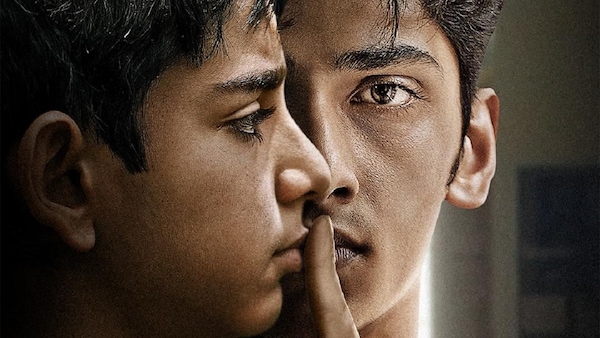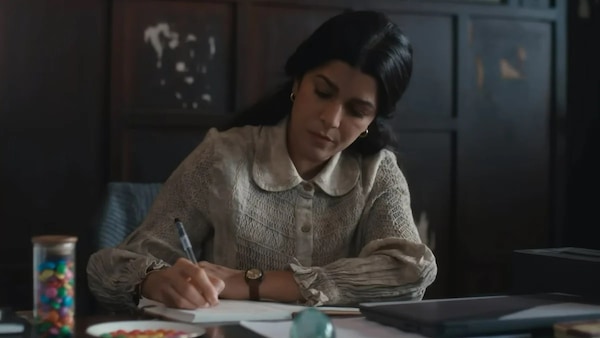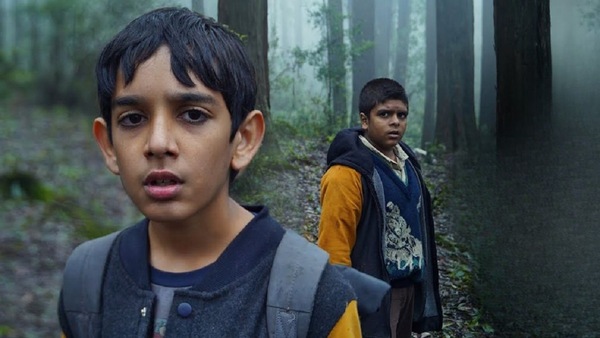School Of Lies: The Story Of A Lost Child Becomes A Tale Of Lost Childhoods
This is #CriticalMargin, where Ishita Sengupta gets contemplative over new Hindi films and shows. Today: School Of Lies.

Last Updated: 03.36 AM, Jun 03, 2023
FILMMAKER Avinash Arun Dhaware has a penchant for seeing kids for how they are: whimsical, wise, silly. He also has a gift of seeing them for what they are: susceptible beings wanting to belong. His intimate debut feature Killa (2014) is a tender portrait of a young boy who comes to live in a small Konkan village from Pune. His father has just died and his mother has been transferred. As the film unfolds, he takes to the place after being taken to by his new-found friends in school. Killa is a glorious depiction of a time when being included suffices for feeling needed, when being seen counts for life’s greatest pleasure. For his recent long-form outing School Of Lies, Dhaware goes back to the start. He evokes a familiar need for belonging but does so to inspect its lack. This time around, his story starts with the news of a lost child and he uses it as a premise to explore a larger theme: the loss of childhood.
At a private boarding school in a fictional place called Dalton Town, a kid has gone missing. Shakti Salgaonkar, a class seven student from River Isaac School of Education (RISE) is marked absent all day. The school authorities intimate the house master Samuel (a terrific Aamir Bashir) who resists police involvement. His pupils will find Shakti, he reassures. Night turns into day but the child is nowhere to be found. In the midst of this, Ludwig van Beethoven’s piece Moonlight Sonata floats in the air. Another child is playing it, unaware of the context. The German composer had crafted the piece in memory of his 18-year old student and lover Giulietta Guicciardi. The haunting notes become a premonition in a show which is based in a place built by teachers and students.

Written by Ishani Banerjee, Nishant Agarwala and Shoaib Nazeer (he is credited for one episode), School Of Lies is a deceptively dense series that covers immense ground across eight 35-minutes-long episodes. It is a great instance of economic storytelling which uses the grammar of whodunnit to tell a story of complicity more than culpability. The outing is unsparing in its intent, using the gaze of children to train the lens on adults.
As news of Shakti being missing spreads, his parents are summoned, the cops are informed. Rounds of investigations follow. And then the plot starts unravelling. The teacher-student relationship is fraught with unequal power dynamics, there is a soft-spoken counselor Nandita (an evocative Nimrat Kaur) who is fighting her own internal battle, caring for a person who overlooked caring for her. There are queer boys, so conditioned by the severity of the institution that they lack words to express, and thus comprehend, their feelings. There is a teacher who is perpetuating the cycle of abuse which he was a victim of. There are adults haunted by the shadows of their past. There are adolescents who will be haunted by shadows of their present.

Dhaware puts these characters in the foreground to explore how the inherent desire to belong for some transmutes into a horrific proposition, devolving into a compulsion of sorts. And that the setting is a boarding school, an institution which trains people to follow a diktat, serves the premise well. Lying then becomes a resort and a refuge. The kids lie to hide the parental neglect they are subjected to and the parents lie to reveal their apathy for their children. It is a circuitous cycle, reminiscent of Shakun Batra’s Gehraiyaan (2022), with respite for none. Much like abuse.
It helps that the director builds an immersive world, getting the tone right. The routine of the school, the unwavering discipline of it, the kids referring to older boys as “sir”, the difficulty to leave a place that has space for all but a place for only a few. It is almost like a microcosm of life itself. Dhaware, also the cinematographer, plays with shadows, invoking a feeling of perpetual dread. Like we are watching a horror film where by the end, the news of a lost child is overtaken by the confirmation of loss of childhoods. The answer to the question, ‘Who did it?” ceases to matter. We know it already. The one who wronged lives among us and the one who was wronged, lives in us. The only way to live is to keep lying.
